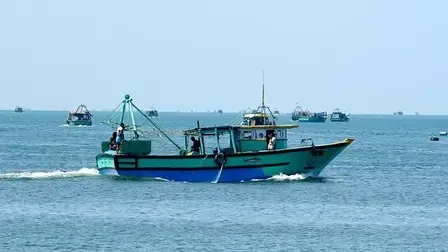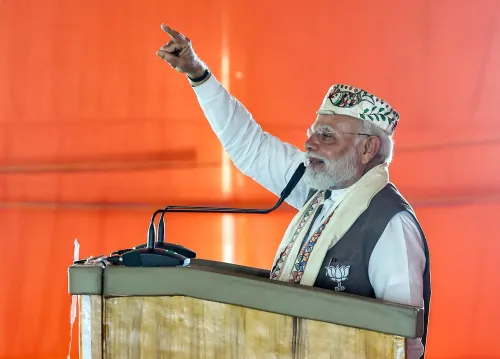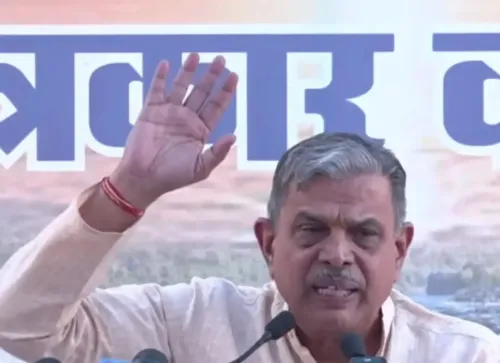Why Were Seven TN Fishermen Arrested by the Sri Lankan Navy?

Synopsis
Key Takeaways
- Seven fishermen from Tamil Nadu arrested by the Sri Lankan Navy.
- Their mechanised trawler was seized during the interception.
- They were part of a larger fleet that had received tokens from the Fisheries Department.
- Another trawler was damaged in a collision with a Sri Lankan Navy boat.
- Ongoing maritime tensions pose a threat to the livelihoods of Indian fishermen.
Chennai, July 13 (NationPress) In a recent mid-sea incident, seven fishermen from Rameswaram in Tamil Nadu were apprehended by the Sri Lankan Navy during the early hours of Sunday for reportedly violating the International Maritime Boundary Line (IMBL), as per police reports.
Their mechanised trawler was also confiscated.
Police officials revealed that the detained fishermen were aboard a vessel owned by V. Isaac Paul from Thangachimadam.
This group was part of a larger fishing fleet that set out on Saturday after acquiring tokens from the Fisheries Department; a total of 456 trawlers were issued tokens that day.
The apprehended fishermen include B. Ruther (40), P. Edison (48), and M. Jegadeesh (42) from Thangachimadam; A. Shanmugam (56) and F. Dalvin Raj (42) from Rameswaram; M. Sakthivel (43) from Keerathurai in Madurai; and Anbalagan, whose home town is still being verified.
Authorities stated that the Sri Lankan Navy intercepted the Indian vessel after it allegedly crossed the IMBL and took the fishermen into custody.
They were taken to the Kankesanthurai port along with the seized boat and subsequently imprisoned in Jaffna.
In a separate occurrence that same day, another Indian trawler faced damage due to a collision with a Sri Lankan Navy patrol boat near the disputed waters between Katchatheevu and Neduntheevu.
The trawler, owned by Maria Seeron, was engaged in fishing when the patrol boat approached, reportedly to interrogate the crew.
During this encounter, the naval vessel allegedly collided with the Indian boat, causing substantial damage.
Fortunately, all seven fishermen on board—identified as Stalin, Muneeswaran, Viyakulam, Columbus, Nagesh, Stephen, and Sarathkumar—successfully navigated their damaged vessel back to the Rameswaram jetty, as confirmed by sources from the Fisheries Department.
These incidents have reignited concerns regarding the ongoing maritime tensions between Indian fishermen and the Sri Lankan Navy, especially in the waters adjacent to Katchatheevu, a region heavily patrolled by Sri Lankan forces and vital for the livelihoods of Indian fishermen.
Local authorities are anticipated to discuss this matter with the Central Government for diplomatic intervention.









